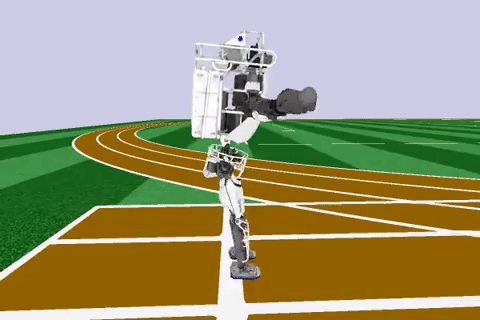Laboratory: Deep Learning Lab
Prof. Abhinav Valada, Prof. Thomas Brox, Prof. Frank Hutter, Prof. Joschka Boedecker, Dr. Tim Welschehold,
Co-Organizers:
Jan Ole von Hartz, José Arce, Silvio Galesso, Simon Ging, Arbër Zela, Kürsat Petek, Iman Nematollahi, Baohe Zhang, Fabio Ferreira , Rhea Sukthanker ,
If you have a question, please post it in the ILIAS forum (so everyone can benefit from the answer). Alternatively, you can also email dl-lab@cs.uni-freiburg.de
Welcome to the Deep Learning Lab a joint teaching effort of the Robotics (R)9, Robot Learning (RL)10, Neurorobotics (NR)11, Computer Vision (CV)11, and Machine Learning (ML)12 Labs. Deep learning has brought a revolution to AI research. A good understanding of the principles of deep networks and experience in training them has become one of the main assets for successful research and development of new technology in machine learning, computer vision, and robotics. In this course, we will teach students the practical knowledge that is needed to do research with deep learning, imitation learning, and reinforcement learning. This course consists of a mixture of lectures, exercises and group projects. The course is divided into five tracks that focus on different aspects of deep learning research. Please register for only one of the tracks mentioned below:

Track 1: Robotics (11LE13P-7302)
Track 2: Robot Learning (11LE13P-7321)
Track 3: Neurorobotics (11LE13P-7320)
Track 4: Computer Vision (11LE13P-7305)
Track 5: Automated Machine Learning (11LE13P-7312)
Please fill in this form with your information if you enroll in this course.
| Lecture/Exercises: | Wednesday, 16.00 c.t. -18.00 (Beginning Apr 19, 2023) Room: Building 082, HS00-006. |
| Requirements: | Fundamental programming skills in Python. Basic knowledge of deep learning, equivalent with having passed the Fundamentals of Deep Learning course. Some experience with the Linux toolchain (text editor, compiler, linker, debugger) is recommended. |
| Lectures, Assignments & Forum: | ILIAS course |
| Remarks: | The lab is organized as an in-person event. |
| Grades: | Students need passing grades in all exercises. Final grades are 50% the average exercise grade and 50% the project grade. |
Phase II: Project |
Sponsor
Support for this course was generously provided by the Google Cloud Platform Education Grant.


